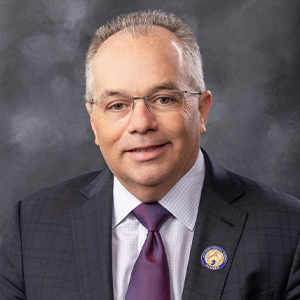
TRENTON, N.J. – Fentanyl, a synthetic opioid 100 times stronger than morphine, is often mixed with other illegal drugs or found in counterfeit pills and is responsible for increasing fatalities among unwitting users. Now, there is a new emerging threat on the illicit drug market: xylazine, a veterinary tranquilizer not approved for use in humans. Dealers are cutting fentanyl with xylazine, creating a street drug called “tranq-dope,” and it’s prompting warnings from health officials and legislation in New Jersey.
“As a father, physician and legislator, increasing awareness of lethal and illegal drugs that harm unsuspecting residents suffering from addiction or opioid-use disorder is a moral imperative,” Assemblyman John Azzariti (R-Bergen) said. “It is especially important that we get in front of young people who are vulnerable to addiction and experimentation so they understand the enormous risks before they fall victim. The sad reality is that fentanyl is so lethal, it is stealing the lives of our youth who are experimenting with drugs for the first time. This bill will save lives.”
Azzariti introduced a bill (A3909) requiring school districts to teach students about fentanyl and xylazine as part of New Jersey’s health learning standards. It is named “Max’s Law” in honor of Max Lenowitz of Woodcliff Lake, who died of fentanyl poisoning on his 25th birthday in 2022 after taking a counterfeit Xanax pill.
“Illicit fentanyl, once widely feared, is not only becoming more common, but also beginning to be preferred by some users because it is so potent and cheaper than other opioids like heroin or prescription drugs on the black market. Now fentanyl drug users are being exposed to xylazine, which is increasing addiction and doesn’t respond to Narcan (naloxone), which reverses opioid overdoses,” Azzariti explained.
Narcan (naloxone) is used to treat opioid overdoses, including fentanyl. However, Narcan doesn’t work to reverse the effects of xylazine because it is a sedative, not an opioid. When fentanyl is mixed with xylazine, addiction deepens, blood pressure, heart rate, and breathing rate decrease, and serious skin ulcers can form that require limb amputation. Xylazine is now present in one out of every nine overdose deaths nationwide involving illicit fentanyl, according to the Centers for Disease Control and Prevention.
“Education can be a powerful force in combating the opioid crisis. Drug abuse prevention, awareness and preparedness will make New Jersey safer through this legislation, which honors the life of Max Lenowitz,” Azzariti said. “Although Max’s life was cut short by fentanyl poisoning, his mother Patrice has ensured his memory is carried on in those families spared from the same pain hers has experienced.”
After emerging on the streets in 2018, xylazine became the second-most common drug to be found in fentanyl in 2023. The CDC reports that drug-poisoning deaths involving xylazine soared 1,238% in the U.S. from 2018 to 2021. It is more prevalent in New Jersey than in other parts of the nation.
“Talking to our children openly about the dangers they will be challenged with every day and working with them towards prevention is the first step towards keeping them safe. When parents and educators are aware, our children are prepared,” said Patrice Lenowitz. “My family didn’t know much about fentanyl, nor did we know counterfeit prescription pills containing fentanyl were so easily acquired and shared among their peers. Fentanyl and the new street drug, xylazine, are highly addictive and deadly. One pill killed our son. Max’s Law delivers lifesaving education in the classroom to keep children and families informed and alive.”
The education in schools would focus on abuse prevention, poisoning awareness, dangers of synthetic opioids and counterfeit drugs, symptoms of fentanyl and xylazine poisoning and how to respond in an emergency. California, Illinois, Mississippi, Oregon, and Texas have laws similar to Max’s Law, with Washington state’s House approving a similar measure just weeks ago.
Sen. Holly Schepisi sponsors the Senate bill (S2818).
